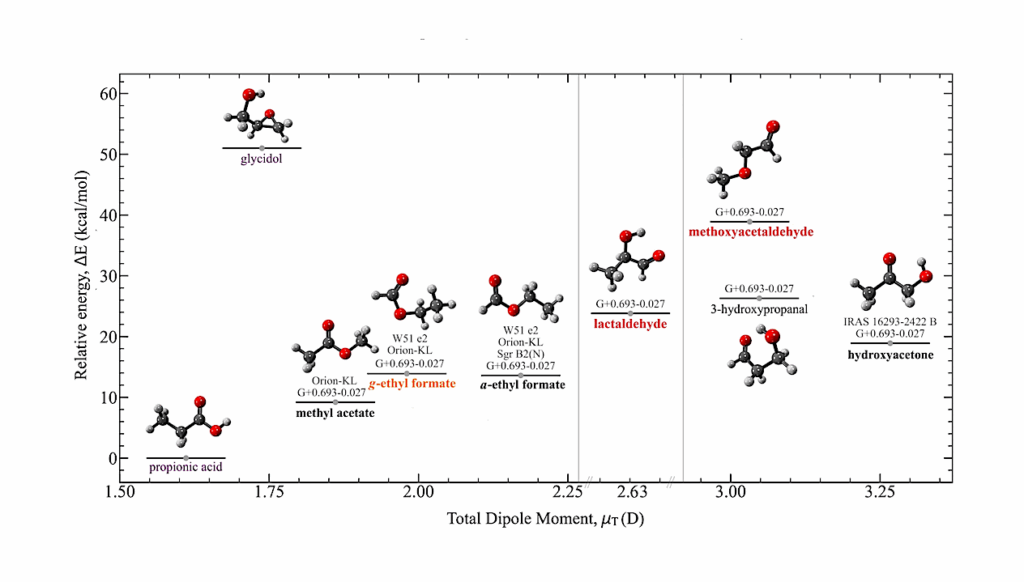Investigating the Hot Molecular Core, G10.47+0.03: A Pit of Nitrogen-bearing Complex Organic Molecules

Recent observations have shown that Nitrogen-bearing complex organic species are present in large quantities in star-forming regions.
Thus, investigating the N-bearing species in a hot molecular core, such as G10.47+0.03, is crucial to understanding the molecular complexity in star-forming regions. They also allow us to investigate the chemical and physical processes that determine the many phases during the structural and chemical evolution of the source in star-forming regions.
The aim of this study is to investigate the spatial distribution and the chemical evolution states of N-bearing complex organic molecules in the hot core G10.47+0.03. We used the ALMA archival data of the hot molecular core G10.47+0.03. The extracted spectra were analyzed assuming LTE. Furthermore, robust methods such as MCMC and rotational diagram methods are implemented for molecules for which multiple transitions were identified to constrain the temperature and column density.
Finally, we used the Nautilus gas-grain code to simulate the nitrogen chemistry in the hot molecular core. We carried out both 0D and 1D simulations of the source and compared with observational results. We report various transitions of nitrogen-bearing species (NH2CN, HC3N, HC5N, C2H3CN, C2H5CN, and H2NCH2CN) together with some of their isotopologues and isomers. Besides this, we also report the identification of CH3CCH and one of its isotopologues. The emissions originating from vinyl cyanide, ethyl cyanide, cyanoacetylene, and cyanamide are compact, which could be explained by our astrochemical modeling.
Our 0D model shows that the chemistry of certain N-bearing molecules can be very sensitive to initial local conditions such as density or dust temperature. In our 1D model, simulated higher abundances of species such as HCN, HC3N, and HC5N toward the inner shells of the source confirm the observational findings.
Suman Kumar Mondal, Wasim Iqbal, Prasanta Gorai, Bratati Bhat, Valentine Wakelam, Ankan Das
Comments: 40 pages, 30 figures
Subjects: Astrophysics of Galaxies (astro-ph.GA)
Cite as: arXiv:2211.03066 [astro-ph.GA] (or arXiv:2211.03066v1 [astro-ph.GA] for this version)
Journal reference: Astronomy & Astrophysics, 2022
Related DOI:
https://doi.org/10.1051/0004-6361/202243802
Focus to learn more
Submission history
From: Ankan Das
[v1] Sun, 6 Nov 2022 09:24:17 UTC (10,019 KB)
https://arxiv.org/abs/2211.03066
Astrobiology, Astrochemistry,








